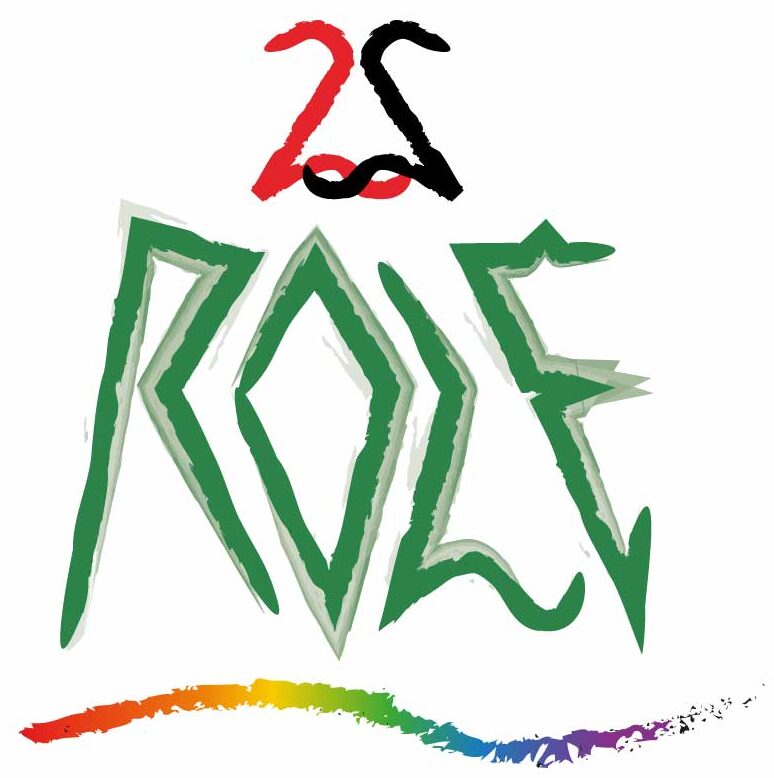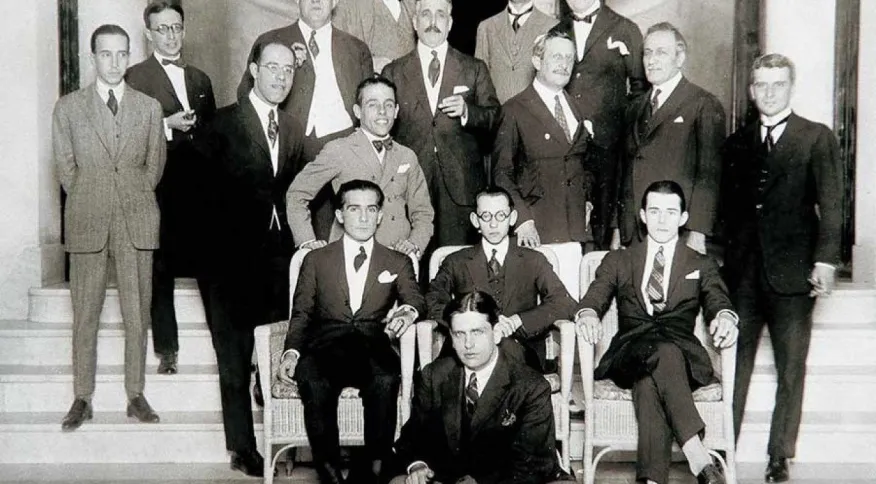IT'S ABOUT IT

Rolê 22 reflects about Modern Art Week in the 1922 from other points of view.
There will be three meetings throughout the first semester, with thinkers and activists, bodies, identities and dissonant territories, to celebrate the cultural legacy left by indigenous and Afro-Brazilian peoples.
Auá Mendes (indigenous of the Mura People, artist, Manauara); with ProvocAtion by Jaíra Potï; Edgar Kanaykõ Xakriabá (Master in Anthropology from UFMG, of the Xakriabá indigenous people - MG); Kae Guajajara (indigenous activist, from the Guajajara people (MA)); Itamirim (actress and singer, from Morubixaba in Village Tabaçu Reko Ypy - SP); and Juão Nyn (multiartist from Rio Grande do Norte, communicator artist of the Indigenous movement of RN);
Contextualize the centenary of the 1922 Modern Art Week. This is the objective of “Rolê 22”, which will bring together a series of actions to offer other views on what we understand by legacy. If in 1922 the modernists gathered at the Municipal Theater of São Paulo to challenge the established order and be present in the celebrations of the Centennial of the Independence of Brazil, in 2022 Rolê 22 enters the ancestral territories to sketch answers to the rhetorical questions: “What do we have to celebrate?”
“What modernity has crossed us?” “On the Bicentennial of Independence, did we stop being a colony?”
The first event takes place on 23rd April, 2022, during Brazil's invention week. On the date, Rolê 22 lands in its first territory of (resi)existence: the village of Tabaçu Ypo (in Peruíbe). The hostess and morubixaba from the Itamirim village participated (actress and singer, morubixaba in Village Tabaçu Reko Ypy (SP); Auá Mendes (indigenous of the Mura People, artist, Manauara); Juão Nyn (multiartist from Potiguar), activist communicator of the Indigenous movement do RN); and Edgar Kanaykõ Xakriabá (Master in Anthropology from UFMG, of the Xakriabá indigenous people – MG). This prose will be mediated by Jaíra Potï (RN/SP), activist and coordinator of Rolê 22.
There will be musical interventions between the speeches of the participants, made by Kaê Guajajara (indigenous activist, from the Guajajara people (MA)), accompanied by Kandu Puri, who in addition to being a poet is also a rapper and artisan of the Puri people.
The meeting will be in person (guests from the village will be in person on the date of the event), but without the presence of the public, who will be able to check everything online, at www.role22.com.br and on the project's Instagram (instagram.com/rolevintedois).
Two other conversation wheels are on important dates for the project: 13th May, the day the Lei Áurea was signed (day of the invention of freedom), at Quilombo de Ivaporunduva (in Eldorado São Paulo). On “São João's Day”, 24th June, the cycle ends with a June celebration at the occupation nove de julho, in São Paulo.
In the centenary of the Week of Modern Art in Brazil, both the fields of Arts and Education are going through a moment of profound questioning of Coloniality. And these questions run through institutional practices and reach everyday life. This is where Rolê 22 comes in: valuing local practices and knowledge – in territories erased by the damage to colonialist heritage, and providing opportunities for the minority population to study and improve, seeking better living conditions. And they are provocations aimed at everyone: descendants of traditional peoples and descendants of the thousands of immigrants who gathered together painted this picture of still poorly defined colours called Brazil.
The project is carried out by the Government of the State of São Paulo through the Secretariat of Culture and Creative Economy and CPBrazil.
A matter of inheritance

Although the Modern Art Week of 1922 has gone down in history as a synonym for the aesthetic rupture of its time, it left a lot to be desired in terms of racial and gender representation, perpetuating traces of the colonialism of power and knowledge, in the same year that Brazil was celebrating the centenary of the Independence. As much as its mentors focused on efforts to unveil a “new provocative character” in the Arts, the great event was conducted mostly by white men whose references pointed to Europe as the center of world artistic thought and production and having São Paulo and Rio de Janeiro as the dominant axes of the country's intellectual and political circulation.
The report “Inequality Kills” reveals that the ten richest men in the world have seen their wealth more than double since the beginning of the pandemic. On the other hand, the incomes of 99% of the world's population have declined since March 2020 (available in https://www.oxfam.org/en/research/inequality-kills).
In the academic sphere, in institutional practices and especially in the ways of everyday life, where they emerge as powers that alter and destabilize the current order while they drive cultural collectives, independent artistic productions and decentralized emancipatory pedagogical practices in the broad sense of the term. At a time when global issues bring to the fore once again the need for subaltern groups to resist the old oppressions of the colonial system and its structural engenders, such as racism and sexism.
That's why Rolê 22 wants to induce a discussion about the “non-place” of minority populations, especially in the field of art and academic life, while offering tools and bridges for these people to have more access.